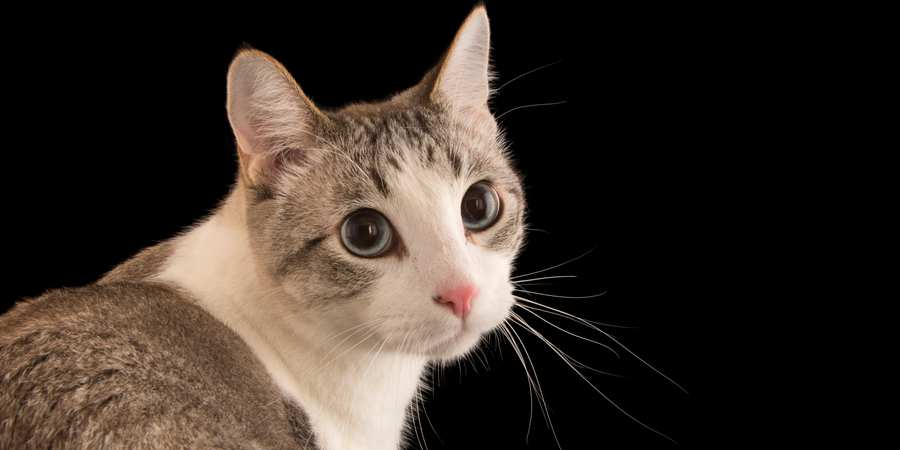Yes, certain dry cat foods can cause diarrhea due to ingredients, allergies, or dietary changes.
Cats are fascinating creatures with unique nutritional needs. Their digestive systems are finely tuned for a specific diet, and any deviation can lead to issues like diarrhea. Understanding whether dry cat food can cause diarrhea involves exploring various factors, including ingredients, feeding practices, and individual cat sensitivities.
Understanding Cat Digestion
The digestive system of a cat is designed to process high-protein diets. Unlike humans, cats are obligate carnivores, meaning their bodies require meat to thrive. Their stomachs are highly acidic, which helps break down proteins and kill harmful bacteria. The small intestine absorbs nutrients efficiently, while the large intestine is responsible for water absorption and waste formation.
When cats consume food that doesn’t align with their digestive capabilities or when there are sudden changes in their diet, it can lead to gastrointestinal upset. This upset often manifests as diarrhea, which is not only uncomfortable for the cat but also concerning for pet owners.
Common Causes of Diarrhea in Cats
Several factors contribute to feline diarrhea. Identifying these causes can help determine if dry cat food is the culprit.
Dietary Changes
Switching a cat’s food abruptly can disrupt its digestive system. Cats thrive on routine; sudden changes can lead to gastrointestinal distress. If a new dry food is introduced too quickly without a gradual transition, it may result in diarrhea.
Ingredient Sensitivities
Some cats are sensitive or allergic to specific ingredients found in dry cat food. Common allergens include:
- Chicken
- Beef
- Dairy products
- Grains like wheat or corn
If a cat has an allergy or sensitivity to an ingredient in its dry food, it may experience diarrhea as a reaction.
Poor-Quality Ingredients
Not all dry cat foods are created equal. Some brands use low-quality ingredients that may not be easily digestible. Fillers and artificial additives can irritate the gastrointestinal tract, leading to diarrhea.
Bacterial Infections and Contamination
Sometimes, dry cat food can become contaminated with bacteria such as Salmonella or E. coli during production or handling. Consuming contaminated food can trigger severe gastrointestinal upset and diarrhea.
Medical Conditions
Underlying medical conditions such as inflammatory bowel disease (IBD), pancreatitis, or hyperthyroidism can also cause diarrhea in cats. If a cat has an existing health issue, introducing dry food may exacerbate its condition.
Selecting Quality Dry Cat Food
Choosing the right dry cat food is crucial for maintaining your feline’s health and preventing digestive issues like diarrhea. Here are some factors to consider:
Read Ingredient Labels Carefully
Look for high-quality protein sources listed at the top of the ingredient list, such as chicken meal or fish meal. Avoid foods with vague terms like “meat by-products” or “animal digest,” as these can indicate lower quality.
Avoid Fillers and Artificial Additives
Select brands that do not include fillers such as corn or wheat gluten, which provide little nutritional value and may cause digestive upset in some cats. Stay away from artificial colors and preservatives; natural ingredients are always better for your pet’s health.
Consider Grain-Free Options
If a cat has shown sensitivity to grains in the past, grain-free dry food might be a suitable alternative. These formulas often contain higher protein levels and fewer potential allergens.
Transitioning Between Foods Safely
To minimize the risk of diarrhea when switching your cat’s dry food, follow these guidelines:
1. Gradual Transition: Begin by mixing 25% of the new food with 75% of the old food for several days.
2. Monitor Your Cat: Observe your feline during this transition period for any signs of gastrointestinal distress.
3. Increase New Food Ratio: Gradually increase the new food ratio over 7-10 days until you reach 100% of the new diet.
4. Consult Your Veterinarian: If concerns arise during this process or if diarrhea persists beyond a few days after switching foods, it’s wise to consult your veterinarian.
The Role of Hydration in Feline Health
Hydration plays an essential role in maintaining your cat’s overall health and preventing issues like diarrhea from becoming severe:
- Encourage Water Intake: Ensure fresh water is always available; some cats prefer running water from pet fountains.
- Wet Food Options: Consider incorporating wet food into your cat’s diet alongside dry kibble; this increases moisture intake which helps digestion.
Proper hydration aids digestion and helps prevent constipation or dehydration that can accompany bouts of diarrhea.
Recognizing Signs of Diarrhea in Cats
It’s important for pet owners to recognize signs indicating their feline friend might be experiencing diarrhea:
- Frequent Bowel Movements: More than usual trips to the litter box.
- Loose Stools: Watery consistency rather than formed stools.
- Straining: Signs of discomfort while trying to defecate.
- Changes in Behavior: Lethargy or decreased appetite could indicate illness.
If any of these symptoms persist for more than 24 hours or if there’s blood in the stool, it’s essential to seek veterinary care promptly.
Treatments for Diarrhea in Cats
When faced with feline diarrhea caused by dietary issues such as certain types of dry cat food, treatment options vary depending on severity:
Home Care Strategies
For mild cases where no underlying health issues are suspected:
- Fasting: Withhold all food (but not water) for 12-24 hours to allow the digestive system time to rest.
- Bland Diet Introduction: After fasting, introduce bland foods like boiled chicken (no skin) or plain pumpkin puree gradually before resuming regular feeding patterns.
However, if symptoms persist beyond 24 hours despite home care strategies—or if they worsen—consultation with a veterinarian becomes necessary.
Conclusion – Can Dry Cat Food Cause Diarrhea?
In conclusion, yes—dry cat food can indeed cause diarrhea due to various factors such as dietary changes, ingredient sensitivities, poor-quality components, bacterial contamination, and underlying medical conditions. Paying close attention to your feline’s diet choices while ensuring gradual transitions between foods significantly reduces risks associated with gastrointestinal distress. Ultimately prioritizing high-quality nutrition tailored specifically toward individual needs promotes optimal health outcomes—keeping those litter box surprises at bay!

